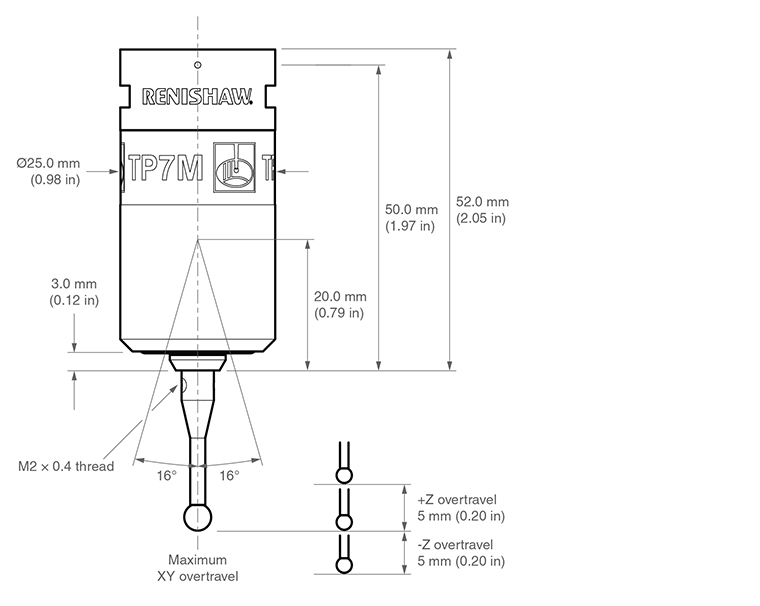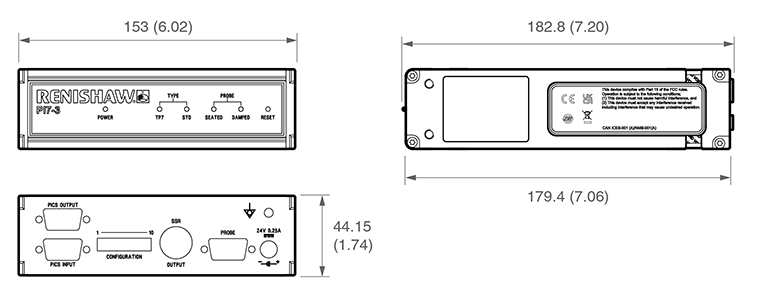Navigation
TP7 product description
TP7M probe
The stylus is coupled to a strain sensing structure that is protected against excessive stylus displacement by a 6-way kinematic overtravel mechanism.
Silicon strain sensors, which detect the small gauging forces applied to the stylus tip, are connected directly to the PI 7-3 interface via the Renishaw autojoint connector, the probe head and associated wiring. The sensor signals are amplified and the resultant ‘probe signals' proportional to the changes of strain, are compared with reference voltages to determine the status of the probe.
PI 7-3 interface
The PI 7-3 is a dedicated signal conditioner for interfacing the TP7M and TP7M EP probes or kinematic switching probes (TP2, TP20 or TP6 / TP6A) to the CMM controller. The recognition of the probe type is automatic. The interface determines the probe status, which is either triggered or seated (armed), and transmits signals to the CMM controller. Status and control signals are passed between the PI 7-3 interface, other Renishaw equipment and the CMM controller via the product interconnection system (PICS) ports.
During high-speed position moves (fast traverse), it is necessary to reduce probe sensitivity to prevent vibration causing unwanted triggers. The CMM controller automatically switches the PI 7-3 into a low sensitivity mode, such that the vibration triggers are prevented, but a trigger is still issued to stop CMM motion if an unexpected collision occurs. This mode is known as “probe damped mode” and is indicated by an LED on the front panel.
The CMM manufacturer sets the configuration of the PI 7-3 and it should not be necessary for the user to make adjustments except to operate the reset button, as explained later in the handbook.
Dimensions


Part number summary
Part number | Description |
|---|---|
A-1073-0121 | TP7M probe kit |
A-1073-0261 | TP7M EP probe kit |
A-1073-0122 | TP7M probe and stylus kit |
A-1073-0123 | TP7M probe and stylus kit (including PS1-16R) |
A-1073-0263 | TP7M EP probe and stylus kit (including PS1-16R) |
A-5726-0100 | PI 7-3 interface |